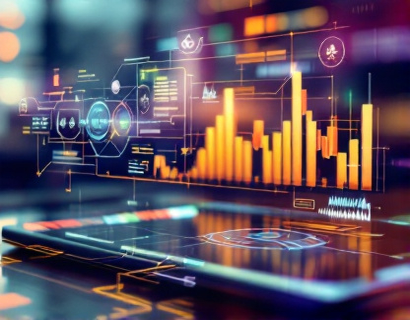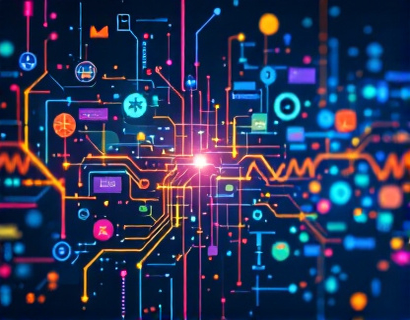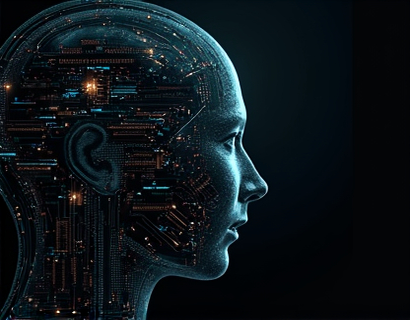Crypto and AI: Transforming Digital Interactions with Advanced Tech for Enhanced User Engagement
The intersection of cryptocurrency and artificial intelligence (AI) is revolutionizing the digital landscape, creating unprecedented opportunities for enhanced user engagement and connectivity. This fusion of technologies is not only redefining how we interact online but also driving significant growth in the tech sector. As we delve into the latest innovations, it becomes clear that the synergy between crypto and AI is paving the way for a more secure, efficient, and personalized digital experience.
The integration of AI in cryptocurrency has led to the development of smart contracts that are more adaptive and responsive to real-world conditions. These smart contracts, powered by AI algorithms, can automatically adjust terms based on market dynamics, user behavior, and other variables, ensuring optimal outcomes for all parties involved. This level of automation and intelligence reduces the need for intermediaries, lowering transaction costs and increasing the speed of transactions.
One of the most significant advancements in this space is the creation of decentralized finance (DeFi) platforms that leverage both crypto and AI. These platforms offer a wide range of financial services, from lending and borrowing to trading and yield farming, all powered by smart contracts and enhanced by AI-driven analytics. Users can make informed decisions based on real-time data and predictive insights, leading to more efficient and profitable financial activities.
AI-driven security measures are another critical aspect of the crypto-AI synergy. Traditional cybersecurity methods often struggle to keep up with the evolving landscape of cyber threats. AI, however, can analyze vast amounts of data to identify patterns and anomalies, predicting and mitigating potential security breaches before they occur. This proactive approach to security is essential in a world where crypto assets are increasingly becoming a target for malicious actors.
Moreover, AI-enhanced identity verification systems are transforming the way users interact with crypto platforms. By utilizing machine learning algorithms, these systems can accurately verify user identities, reducing the risk of fraud and enhancing the overall user experience. This not only streamlines the onboarding process but also ensures compliance with regulatory requirements, making crypto more accessible and trustworthy for a broader audience.
The impact of AI on user engagement in the crypto space is profound. Personalized user interfaces and experiences are becoming the norm, thanks to AI's ability to analyze user behavior and preferences. This personalization extends to content recommendation systems, which curate relevant information and opportunities based on individual interests and activities. As a result, users are more likely to engage with the platform, leading to higher retention rates and increased user satisfaction.
In addition to personalization, AI-powered chatbots and virtual assistants are enhancing customer support in the crypto ecosystem. These AI-driven tools can handle a wide range of queries and issues, providing instant and accurate responses. This not only improves the user experience but also reduces the workload on human support teams, allowing them to focus on more complex tasks.
The combination of crypto and AI is also driving innovation in the realm of digital assets and NFTs (Non-Fungible Tokens). AI algorithms can create unique and valuable digital assets by analyzing and synthesizing vast amounts of data, from art and music to real estate and collectibles. These AI-generated NFTs are not only unique but also carry intrinsic value, opening new avenues for creators and collectors alike.
Furthermore, AI is playing a crucial role in the development of decentralized marketplaces where crypto assets can be bought, sold, and traded without intermediaries. These platforms use AI to match buyers and sellers based on preferences, price sensitivity, and other factors, ensuring a fair and efficient trading environment. The transparency and traceability provided by blockchain technology, combined with AI's analytical capabilities, create a robust and trustworthy marketplace.
The influence of AI on the crypto ecosystem extends beyond financial services and digital assets. It is also transforming the way crypto projects are developed and managed. AI-driven project management tools can optimize workflows, predict potential bottlenecks, and allocate resources more effectively. This leads to faster development cycles and higher quality outcomes, making the creation of new crypto projects more viable and successful.
Another area where AI and crypto are converging is in the realm of predictive analytics. By analyzing historical data and current trends, AI can provide insights into market movements and user behavior. This predictive power is invaluable for investors and developers, helping them make informed decisions and stay ahead of the curve. Whether it's identifying emerging trends, forecasting price movements, or anticipating user needs, AI-driven analytics are a game-changer in the crypto world.
The integration of AI in the crypto space is not without its challenges, however. One of the primary concerns is the ethical use of AI, particularly in terms of data privacy and algorithmic bias. Ensuring that AI systems are transparent, fair, and respectful of user data is crucial for maintaining trust and credibility in the crypto ecosystem. Developers and organizations must prioritize ethical AI practices to avoid potential backlash and ensure sustainable growth.
Regulatory compliance is another significant challenge. As governments around the world begin to recognize the potential of crypto and AI, they are implementing regulations to govern their use. Navigating this complex regulatory landscape requires a deep understanding of both crypto and AI technologies, as well as a proactive approach to compliance. Organizations must stay informed and adaptable to meet regulatory requirements while continuing to innovate.
Despite these challenges, the future of crypto and AI looks promising. The ongoing advancements in machine learning, natural language processing, and blockchain technology are set to further enhance the user experience and drive new innovations. As more businesses and individuals recognize the benefits of this synergy, the demand for crypto-AI solutions is likely to grow, fostering a more connected and efficient digital world.
In conclusion, the merging of cryptocurrency and artificial intelligence is transforming digital interactions in profound ways. From smart contracts and DeFi platforms to AI-driven security and personalized user experiences, the potential applications are vast and varied. As this field continues to evolve, it is essential for tech enthusiasts and professionals to stay informed and engaged, embracing the opportunities and addressing the challenges that come with this exciting new frontier.










































